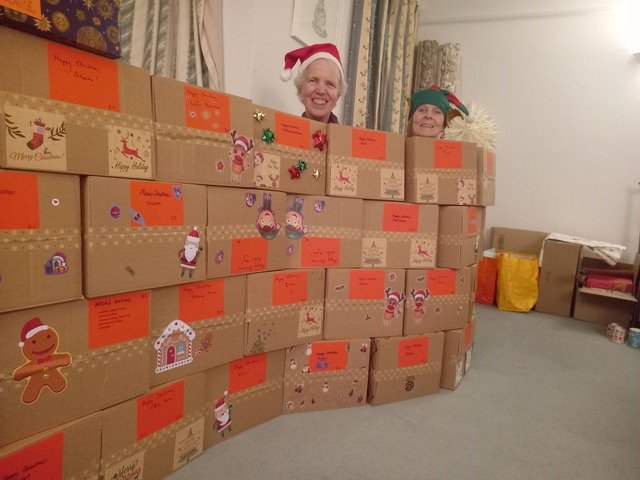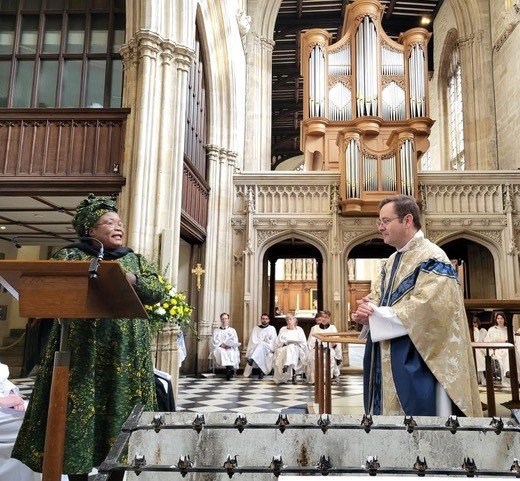
Since the fall of Kabul to the Taliban in August 2021, 21,000 Afghan refugees have been settled in the UK, according to government figures. Some found temporary homes in two hotels in Oxfordshire. St Mary’s supports Asylum Welcome, which helps them access healthcare, education, employment and English lessons.
In Advent 2021, members of the congregation filled backpacks with gifts for the 42 children in one of these hotels. Ages ranged from small babies to 17-year-olds. Each donor bought gifts for a specific child. We also gave presents to their parents and the other adults in the hotel.
The project gave such joy to both donors and recipients that we repeated it in 2022, by which time the first families had moved on, and 15 new ones had arrived, with 58 children. These children already had backpacks, so we filled boxes with toys, treats, hats and gloves – and, responding to a suggestion from Asylum Welcome, gave umbrellas to the adults.
Asylum Welcome’s worker at the hotel reported that ‘excitement levels went through the roof’ when the presents were distributed: ‘lots of happy children and adults’.
In both years, students from the chapel of Wadham College played an enthusiastic part in the project.
Caption: The 2022 boxes, ready for delivery
